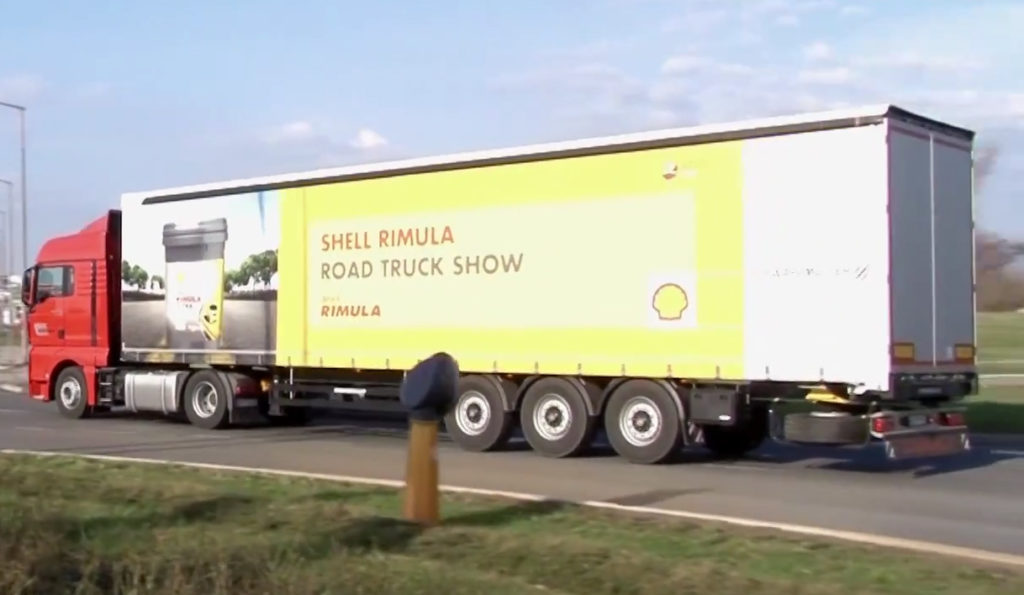Smoke belchers, road hogs, takaw-aksidente. These are some of the things that trucks bring to mind. What about truck drivers?
Joaquin Rimando, fondly called “Jake,” is 62 years old, father of two. A soft-spoken native Ilonggo, his face is leathery and brown from years of driving his truck with the windows down, under the glare of the sun, and in the soft moonlight by night.
Jake has spent 25 years driving a truck, a jeepney driver of 10 years before switching trades, Jake has been making a living driving trucks ever since.
Jake’s son, Jojo, now 25, has followed in his footsteps as a second-generation truck driver.
“Maraming galit sa mga drayber ng truck, pero alam ko na importante ito sa ating pamumuhay. Hindi namin ikinahihiya ang trabaho naming mag-ama kasi dahil dito napapakain ko ang aking pamilya at napagtapos ko ang anak kong babae sa UE (It’s a thankless job, but somebody’s got to do it, and my son and I are not sorry because it’s put a roof over our family’s head, food on the table, and seen my daughter, his sister, through her college education. She’s a graduate of UE),” Jake declares with a proud lilt of his head.
Very few people know it, but Jake puts his life on the line every single day. Just like most truck drivers, Jake’s job is to deliver from Point A to B, but what people don’t notice, or care about, is that means as much as 16 hours on the road per day—traffic, weather, and road conditions permitting. From smooth highways to rutted dirt roads, no matter the cargo, whether perishable or fragile, Jake is responsible for seeing it gets there intact, and on time.

“Hindi mo masabi kung ano ang makakatagpo mo sa biyahe. Swerte nga lang kung trapik lang ang kalaban, pero kadalasan bumibiyahe ako sa dilim na wala ako halos nakikita. Buti na lang kabisado ko na ang mga daan (You don’t know what you’ll meet on the road, if you’re lucky, it’s only the traffic you have to contend with, but most days, it’s pitch black countryside roads… I could navigate the provinces with my eyes closed),” he adds with a chuckle.
Jake thumbs his bill of lading, hands gnarled, fingers calloused from gripping the steering wheel and the stick shift, “Pag nahatid ko na ang kargado at napirmahan na ang resibo, pwede na akong umuwi sa aking pamilya (When I reach my destination, the person signs it, and I’ve done my duty, and I can go home to my family,” says Jake. “Kadalasan pag-uwi ko, tulog na sila o paalis na rin para pumasok, pero sapat na iyong nakikita ko sila (I make it back and they’re either fast asleep, or on their way out the door, but it’s enough for me to see them).”
A rosary hangs on the rear-view mirror and Jake kisses it with a fervent prayer before he goes behind enemy lines again, the city streets where trucks are despised, and are easy targets for law enforcement. “Lagi kong pinagdarasal na makaiwas ako sa aksidente at ako’y maging alisto, at ang kargada na dadalhin ko ay hindi kabigatan. Pero hindi ko naman pwedeng piliin ang aking dadalhin. Ako ang pinipili (I always ask for a safe journey, to stay alert and for my load to be light, but we can’t choose, we’re chosen),” muses Jake.
Chosen by the bags of cement going into building classrooms in the barrio, chosen by medical supplies going to rural hospitals, chosen by the sacks of rice going to the public market, all these are goods Jake has brought from North Harbor pier to the far corners of Luzon for the building up of communities.
“Pag nagmamaneho ako, binubulungan ko ang truck ko na sana hindi ito tumirik, pero hindi ako gaanong kinakabahan dahil alam kong alaga ang truck na lagi kong dinadala (When I’m in the driver’s seat, and put the truck in gear, I whisper for it to have my back and not get into engine trouble, but I worry less because what matters is inside,” says Jake, patting his chest, “Alam ko na hawak ko kung saan ako papunta (I know I’m in control of where I need to be).”
“Masarap namang magmaneho basta alam mo na kondisyon ang truck na dala mo. Basta kondisyon ang truck na dala ko, pakiramdam ko kaya ko pang magmaneho ng 25 taon (There’s something about going the distance, and the pleasurable feeling of a smooth drive when the truck is in tip-top shape, when it’s in the proper condition. I can keep on driving another 25 years, if you ask me),” jokes Jake.
Jake relies on his efficiently-running vehicle, without which his crucial role in the economy could not be played. As Jake reveals, the fleet mechanics of the trucks he drives take care of the vehicles well and use first-rate lubricants, such as Shell Rimula engine oil. Shell Rimula’s heavy duty engine oil keeps Jake’s truck on the right track—to progress. This is what Shell Rimula brings to the table, as the oil that helps keep trucks moving, the oil that helps drive progress.
Logistics is big business, yet the truck drivers, the first ones in, and last ones out, driving the economy by transporting goods, go by unseen, as they go the last mile. Their camouflage? The lumbering truck, big monsters on the road, taking up too much space, creating traffic jams, and not caring at all about smaller vehicles.
The truth is that Jake, and truck drivers like him are responsible for making our economy—or any economy, for that matter—move. Without them, business would come to a screeching halt and everything would be in chaos. A vital link in the supply chain, truck drivers are one of the main drivers of our country’s economy, and the key to the Philippines’ progress.

